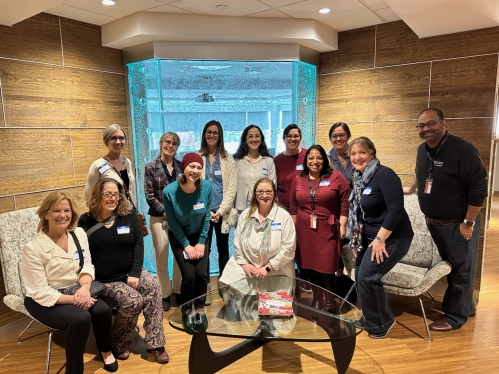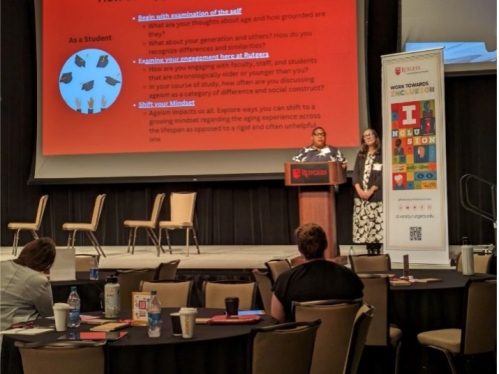
Social Work Leadership on Aging Education at Rutgers
A taskforce inspiring age inclusivity at Rutgers University
Education is a critical way to dismantle ageism and ensure inclusion across the lifespan. Beginning in 2021, a group of faculty members across Rutgers University have created programming to help educate and inspire students to become more age inclusive in their future professional roles. After years of teaching students about ageism and working in the community with older adults, we wanted to do more. Funded by an initial Innovation Grant from Rutgers – New Brunswick, Drs. Lauren Snedeker (Social Work) and Tracy Davis (Health Professions) launched the Rutgers University (RU) Taskforce on Aging. This service-oriented and student-focused taskforce works to advance age inclusivity across the university.
Meet the Taskforce Members
Careers in Aging
The Gerontological Society of America (GSA) hosts Careers in Aging Month to help inspire students to consider work with the older adult population in varying capacities. The RU Taskforce on Aging has been leading programming for students for Careers in Aging Month since 2021.

Age-Friendly University Designation
The Age-Friendly University Global Network is an association of higher education institutions committed to promoting positive and healthy aging and enhancing the lives of older members of the global community. Members of the RU Taskforce on Aging, the Hub for Aging Collaboration, and beyond, are committed to helping Rutgers University – New Brunswick endorse these principles and become the 2nd university in New Jersey to become age-friendly.
Addressing Ageism in the Classroom
With support from an internal grant at Rutgers University, the RU Taskforce on Aging has developed a living toolkit for instructors that focuses on teaching students about ageism. The toolkit is open for Instructors to adopt content into their courses and contribute to based on their own expertise with older adults. The need for such a toolkit stems from findings from a survey of Rutgers faculty conducted by the Taskforce in 2022, which found that while 48% of those who responded understood the importance of addressing ageism in their courses, only half of respondents felt they could define ageism and describe its impacts.



Connect with the Taskforce
Reach out to the Taskforce if you are interested in learning more about our work or collaborating on future projects.
